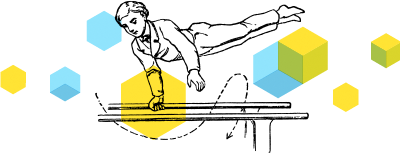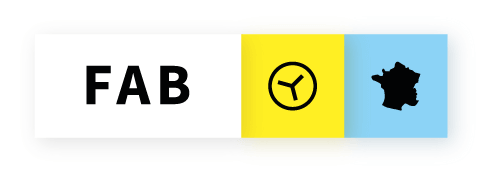CR Entretien Edwin Van den Belt (TOMP-WG)
Description en une ligne : Interview of Edwin Van den Belt an active contributor of TOMP-WG conducted in english by Marguerite Grandjean and Ghislain Delabie as part of benchmark of MaaS Standards, october 26, 2021
Description : Interview of Edwin van den Belt, a active contributor of TOMP-WG (informal organization working on TOMP-API) conducted in english by Marguerite Grandjean and Ghislain Delabie as part of Benchmark Standards MaaS, october 26, 2021
Introduction
In what capacity are you involved in TOMP-WG ?
I’m an employee at Katapult, partly paid by Switzerland to participate in TOMP and make it fly. I have done a few project in Europe. Another project is a pilot by Dutch government with BoxMove (Germany) for credentials on the blockchain which is completely open. Get to know your customers with personal data stores.
Because at the level 2 of integration of operations, you need personal info, which is not standardized at this moment. TOMP cannot be complet without handling user information.
There are multiple solutions for personal information. I believe TOMP can cope with all of them. We try to get aligned with all project right now. We thing it will merge to 1-2 solutions only.
If there's a new MaaS ecosystem with proprietary user / Payment management, they can handle it, but the EU directive on "user identification" will apply long term.
TOMP-API wants to be aligned with all the possibilities. it's a piece of the puzzle that can connect to all the "ecosystems"
Will TOMP get all the pieces of the puzzle eventually ?
No, the aim of TOMP is to get alignent with anything possible, to fit with every ecosystem. TOMP acts between MaaS and MSPs, but also between different MaaS providers e.g to contact Trafi (with all the services they aggregate) or IDFM, you can use TOMP-API.
Even parking lots, digital meetings, car, places, trains, planes could be connected. Everything mobility related that you claim / reserve could be addressed with TOMP-API. Very sensitive for TOMP to be use in a context.
How Tomp was born ?
Start in 2017 / early 2018 with few people, no budget. Every week, we had a call with 40 participants, each with their own issues & requests. We took 3 years with 40-50 differents scenarios between 2017 and 2020. Now many fields are optional, few are mandatory. It's modular.
What the motivation of the Dutch Government ?
Green Deal : General idea around infrastructure was to try and spread the investment into innovation rather than bigger roads. 200M€ in roads or 5 M€ in MaaS.
What do you want to achieve with this initiative ?
Goal = TOMP can be applied everywhere.
Balance between making it accessible to all processes & not losing the generic part.
Every city get its own MaaS island. But MaaS doesn't stop at the border. Today tendering by cities established walled garden ecosystems, that makes it difficult to go from a city to another with only on app.
Easy to do in Amsterdam with different apps,but not if you go Utrecht from another city. So we need for MaaS not only in cities, but also at national level, and across borders.
Other European project
- Urban Mobility Operating System (funded by EU) aims for a European wide ecosystem
- GaiaX is not an ecosystem, it's an operating system to create ecosystems. GaiaX -IDS standard is an implementation by IBM, heavily funded by France and Germany to create ecosystem around teams / Sectors ( Car or MaaS ) You make contract with the ecosystem to exchange data, used mostly for sensors in cars
Natural language is more a problem than technical language. MaaS ecosystem in Italy, UK, Nordic : How to bridge them. The "meta" part (context) is important in TOMP. There are process identifiers in TOMP-API. These Labels are for TOs to tell how it should be handled.
Adoption
Do you have a rough idea of how many organization use the standard ?
There are dozen (Maybe 100) of implementations. We get questions from lots of people.
What are the current implemtations ? and the ones in development ?
Heavily used in taxi world.
- FMS / Austrosoft (CH)
- TaxiElectric (Amsterdam)
- InTaxi solutions (NL)
In NL other taxi organisations will have TOMP in production by end of year.
Governance
What is the legal structure of TOMP ?
None yet. We are working on it.
Is there a full time team ?
No, none of us is full-time, we are all paid by other projects.
What are the role & Statuses of the different parties involved ? How it is organized ?
The working group has biweekly meeting. We decide together what and when to release. Since the start in 2017 (first meeting late 2017), about 50 participants in different organizations.
Some are still active, currently 20 active members. It's open, anyone could attend. Some attend only once. They have presentations and talks on how to implement in different use cases.
Who has the most influence over standard ? Who gets to dedice ?
Lots of requests, but when you have a standard, you can't adapt it to every business process. In the end, every business will have to adapt to the standard ?
Are there any rules for publishing new version ? What is the process ?
Always take care of backward compatibility ( v1 with v2)
But it should not change a lot anymore. Requests go to GitHyb to make changes, but most questions are directfly answered by the current API. There will be few xhanges in the future, but the process is stable.
We are aware that on major hiccup of TOMP is transactions / Booking. Today if you cancel you have extra costs. In TOMP, you wait for a chain of bookings to be confirmed before committing, because it doesn't fit their current business processes. We work with those companies on how to change them. But they don't want because they're stuck on their own processes.
Ecosystem
So, what's an ecosystem ?
Standardized in an open way: if you connect to all TO with different methods, not easy to belong to this ecosystem. So it’s not an ecosystem per se.
Standardized processes as well (e.g. insurance). We need digital contracts like iShare.org (architecture for digital contracts, very fine-grained contracts for everything).
There are quite a lot of ecosystems nowadays (like plateforms) but aren't really ecosystems.
TOMP is not an ecosystem. Just an API.
How many active members are there in each of the working teams ?
50 participants came since 2017 (sometimes just 1 or 2 general meetings)
There is 20 active members now.
What relationships do you have with the other SDOs and other standards ?
We are heavily involved with MobilityData for better alignement with GTFS and GBFS.
There is a plance for NetEX for big PTOs, and there is a place for GTFS for smaller ones.
Why not take 2 standards ? TOMP doesn't care which one to use. No preference. TOMP-API on on top of data standards
Business model
What is the budget of TOMP ?
MaaS pilot subsidized : 16 millions € for 7 pilots.
TOMP got no budget, it's all contributions from companies.
Are you considering ideas to sustain TOMP in the longer term as an independent organization ?
EU -funded projects : That's why we want to become a real legal body.
How do you thing TOMP will develop in the future ?
We don't really have time for strategy. We need money to be able to do that.
Prise de note sur le PAD (cocher si Oui) ? Non
Commun(s) impliqué(s) : Transport Operator MaaS Provider (Tomp-API)
Communauté(s) d'intérêt impliquée(s) : Standards Ouverts pour des MaaS d'intérêt général
Prochaine Etape : n/a
Autres informations :

 Français
Français English
English Italiano
Italiano